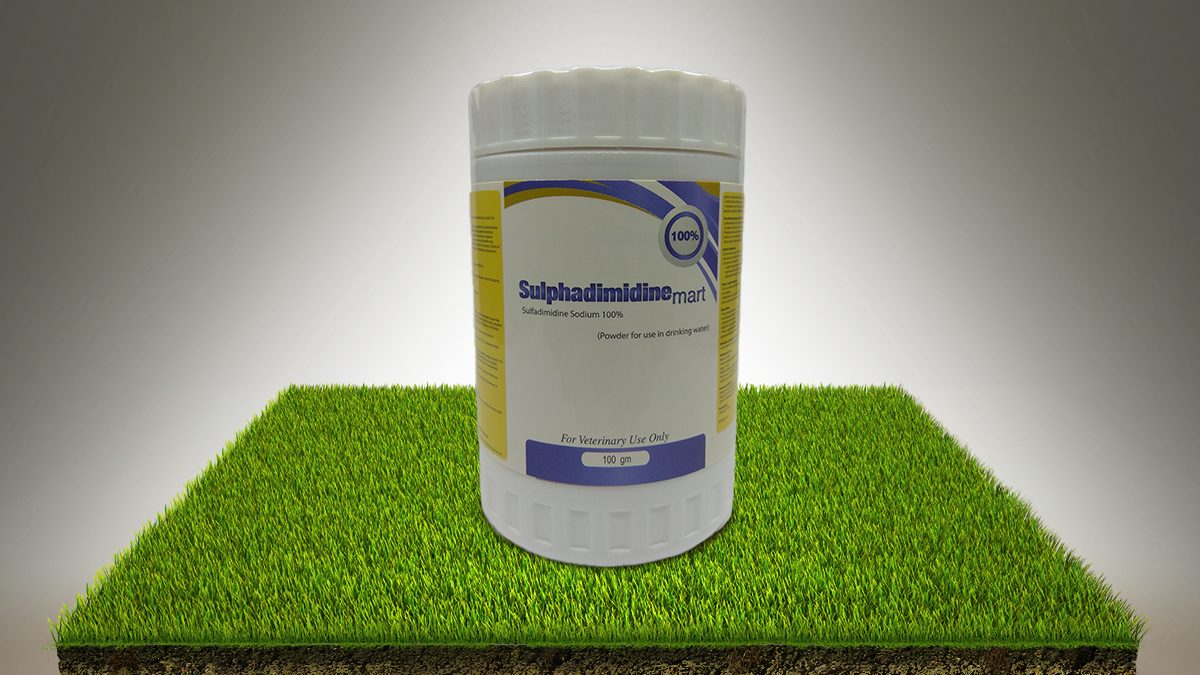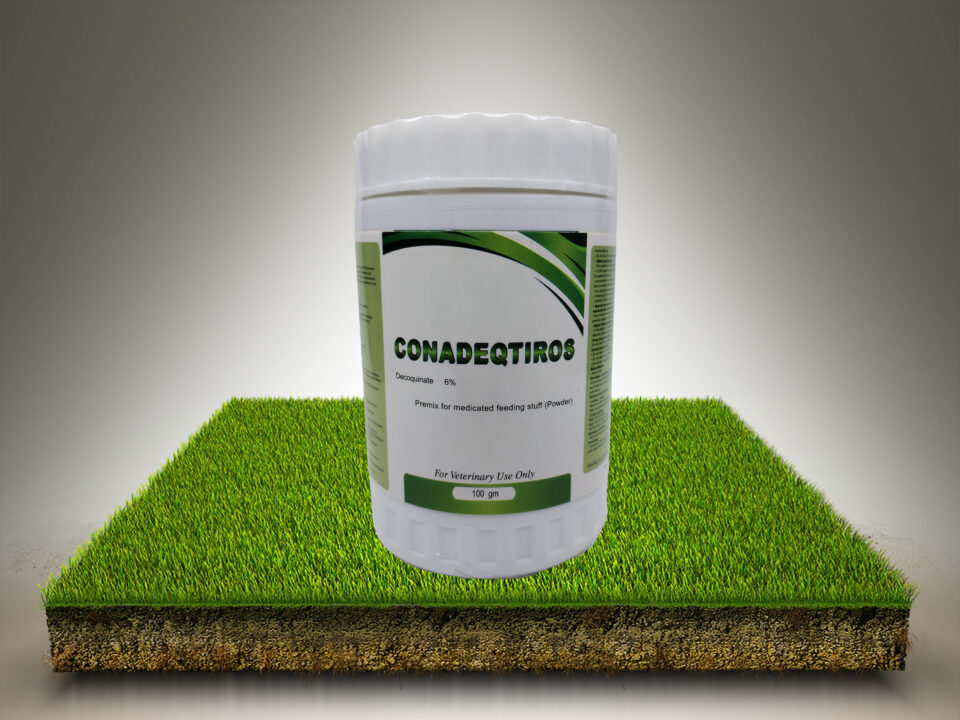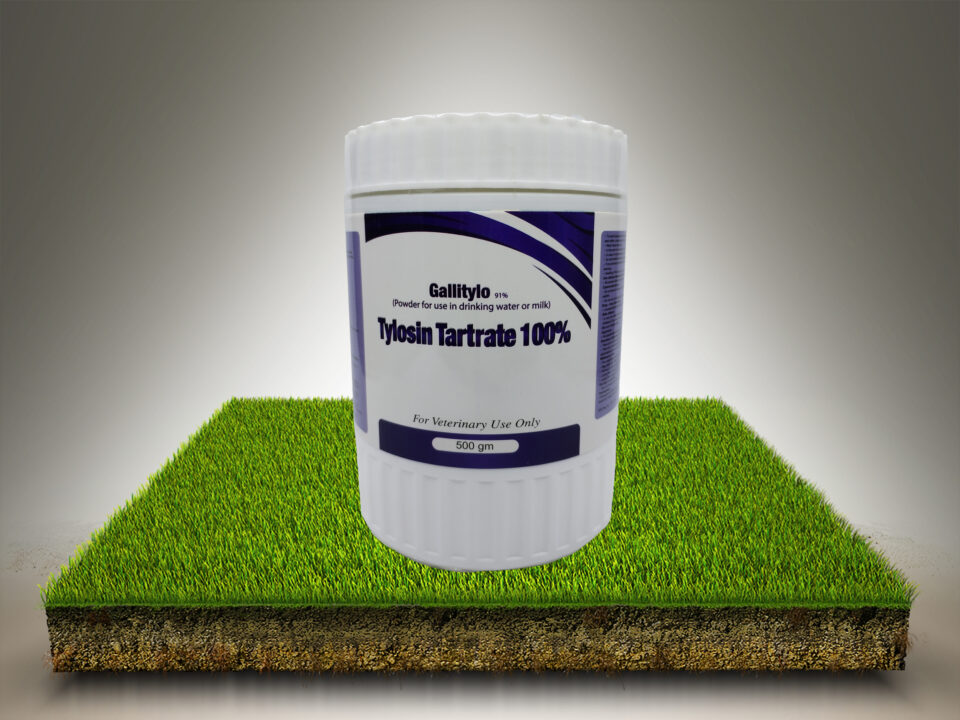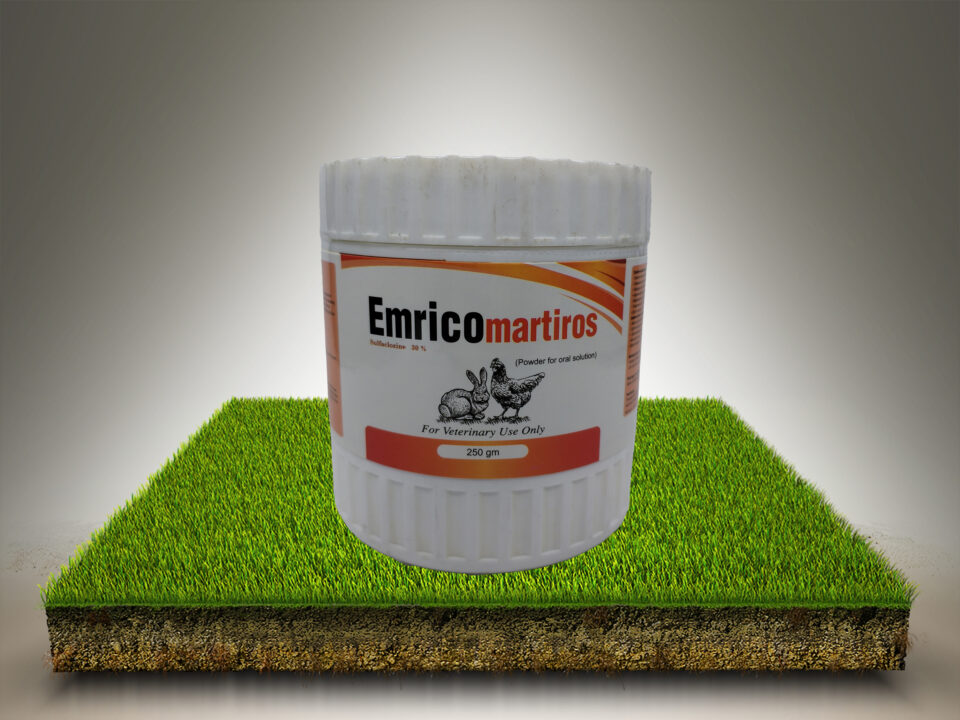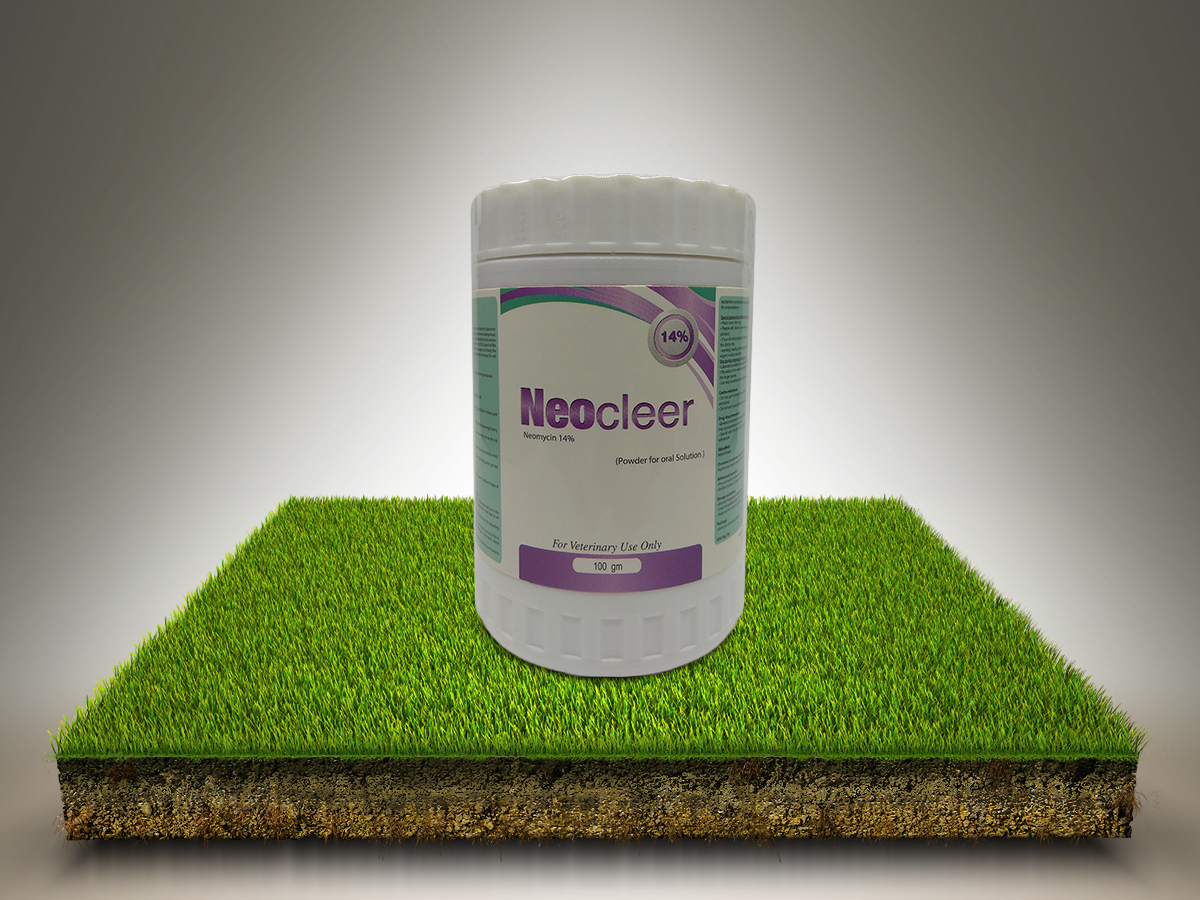
Neocleer 14%

Gallitylo 91%
Powder for use in drinking water
For Veterinary Use Only
Composition:
Each gm contains:
Sulfadimidine Sodium. 1000 mg
Properties:
Sulfadimidine is a chemotherapeutic agent with activity against folic acid synthesizing bacteria, Rickettsiae and coccidia. The effect is bacteriostatic rather than bactericidal. Its mechanism of action is based on
competitive inhibition of the production of dihydropteroate, the direct precursor of folic acid, by competition from sulfadimidine
with PABA (para-amino-benzoic acid). This inhibit the production of folic acid, and thereby inhibiting the growth of sensitive germs. The spectrum of all sulfonamides is generally the same. Sulfonamides inhibit both gram-positive and gram-negative bacteria, Nocardia, Actinomyces spp, and some protozoa such as coccidia and Toxoplasma spp. More active sulfonamides may include several species of Streptococcus, Staphylococcus, Salmonella, Pasteurella, and even Escherichia coli in their spectra. Strains of Pseudomonas, Klebsiella, Proteus, Clostridium, and Leptospira spp are most often highly resistant, as are rickettsiae, mycoplasmas, and most Chlamydia.
Indications:
For treatment it is used of:
• Pre-ruminating calves (Beef and Dairy, Not Lactating): Bacterial pneumonia and bovine respiratory disease complex (shipping fever complex) caused by Pasteurella spp.
• Pigs: Porcine colibacillosis (bacterial scours) caused by Escherichia coli.
• Broiler Chickens: Infectious coryza caused by Haemophilus gallinarum.
• Turkeys for meat production: Coccidiosis caused by Eimeria meleagrimitis and Eimeria adenoeides.
Target Species:
Pre-ruminating calves (Beef and Dairy, Not Lactating), pigs and Broiler Chickens , Turkeys for meat production.
Dosage & route of administration:
Route of administration: Orally in drinking water
For active ingredient:
• In Pre-ruminating calves (Beef and Dairy, Not Lactating): 100 mg of Sulfadimidine Sodium per kg of bodyweight and per day for 3 to 5 consecutive day. For Treatment of Bacterial pneumonia and bovine respiratory disease complex (shipping fever complex)
• Pigs: 100 mg of Sulfadimidine Sodium per kg of bodyweight and per day for 3 to 5 consecutive days. For Treatment of Porcine colibacillosis (bacterial scours).
• In Broiler Chickens : 150 mg of Sulfadimidine Sodium per kg of bodyweight and per day for 3 to 5 consecutive days. For Treatment of Infectious coryza
• Turkeys for meat production: 150 mg of Sulfadimidine Sodium per kg of bodyweight and per day for 3 to 5 consecutive days. For Treatmentof Coccidiosis.
For whole product:
• In Pre-ruminating calves (Beef and Dairy, Not Lactating) and pigs: 1 gm of product /10 kg of bodyweight orally per day for 3 to 5 consecutive days. For Treatment of Bacterial pneumonia and bovine respiratory disease complex (shipping fever complex).
• Pigs: 1 gm of product /10 kg of bodyweight orally per day for 3 to 5 consecutive days. For Treatment of Porcine colibacillosis (bacterial scours).
• In Broiler Chickens: 1.5 gm of product /1liter drinking water per day for 3 to 5 consecutive days. For Treatment of Infectious coryza.
• Turkeys for meat production: 1.5 gm of product /1liter drinking water per day for 3 to 5 consecutive days For Treatment of Coccidiosis.
Warnings:
• If no improvement occurs after three days, the treatment should be discontinued.
• Make sure there is an adequate supply of drinking water when taking medication via the feed.
• In connection with the excretion of residues, it is necessary the treated animals house separately from untreated animals, clean pens regularly and to remove manure.
Precautions:
Special precautions for use in animals:
• Broiler Chickens – Turkeys for meat production: prepare new solutions every day.
• Give the treated animals plenty of water, during and after the treatment.
• Do not dilute in a very hot liquid (over 50 ° C).
Special precautions to be taken by the person administering the veterinary medicinal product to animals:
In case of known allergy to sulfonamides, avoid handling the product.
• Handle this product taking the recommended precautions to avoid any risk of exposure: the wearing of protective glasses and gloves is recommended when preparing the solution for oral administration.
• Avoid contact with skin and eyes.
• If symptoms such as skin rash appear after exposure to the product, seek medical advice and show this warning. Swelling of the face, lips or eyelids or difficulty breathing are more serious symptoms and require urgent medical attention.
Use during pregnancy, lactation or lay:
• Sulfonamides cross the placental barrier. Animal studies have shown a teratogenic effect.
• In veterinary practice, the use of sulfadimidine has apparently not revealed any particular teratogenic or foetotoxic effect to date.
• Therefore, the use of sulfonamides in pregnant females should be subject to a benefit / risk assessment by the veterinarian.
• Not for use in animals producing milk for human consumption.
• Not for use in birds producing eggs for human consumption.
Contra-indication:
• Do not use in case of a history of allergy to sulfonamides.
• Do not use in animals with severe renal or hepatic impairment.
• Do not use in animals with:
– conditions associated with reduced water intake.
– hypersensitivity to sulphonamides.
– disorders in the blood-forming organs.
Drug–drug interaction:
• Do not combine with other veterinary medicinal products, in particular do not combine with other antibacterial agents and/or coccidiostats.
• Sulfadimidine in combination with monensin or salinomycin causes severe growth retardation.
• Do not administer concomitantly with methenamine.
Side effects:
• The potential side effects of sulfonamides are numerous, but in veterinary practice they are rarely seen:
• Possible hypersensitivity reactions;
• Crystalluria with hematuria if the amount of water consumed is insufficient;
• Digestive disorders linked to a disturbance of the digestive flora;
• Other undesirable effects are possible after prolonged treatment: photosensitization, keratoconjunctivitis sicca, bone marrow depression (aplasia, granulocytopenia, thrombocytopenia), hepatitis, jaundice.
Overdose (symptoms, emergency procedures, antidotes), if necessary:
• In the event of an overdose, symptomatic treatment will be implemented. There is no antidote.
Withdrawal Period(s):
Meat and offal:
• Pre-ruminating calves (Beef and Dairy, Not Lactating): 12 days.
• pigs: 15 days.
• Broiler Chickens & Turkeys for meat production: 10 days.
-Not for use in animals producing milk for human comsumption .
-Not for use in birds producing eggs for human comsumption.
Storage conditions:
• Store at temperature not more than 30°C
• Used immediately after opening & after reconstitution.
• Keep out from reach of children.
Packagings:
100,250,500 and1000 gm plastic jar.

